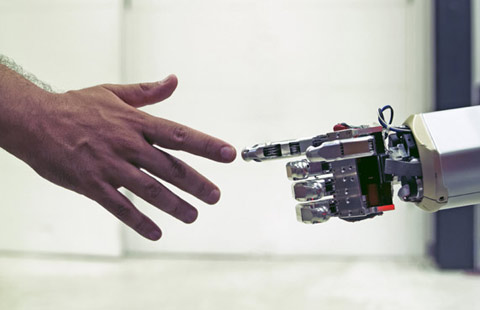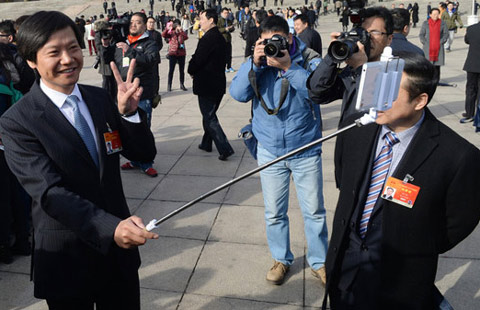Jobs for the disabled through careers center
(Xinhua) Updated: 2012-05-21 16:05BEIJING - Zhang Zheng is grateful for the employment guidance of the Beijing Career Service Center for the Disabled.
The 28-year-old IT technician, who suffers paralysis in both legs, recalls being turned down for many jobs on the grounds of his disability before the center secured him work with energy giant EDF in 2009. "I was accepted by one technology company only to find their workplace, full of stairs, was really not suitable for a man with crutches," he remembers.
"The center sent me good news when I was extremely down. They told me there was a vacancy at EDF and they would help me get an offer if I was interested." Of course he was interested.
A career mentor taught Zhang some interview skills, and then sent off his resume and helped arrange an interview. Finally, EDF was won over by Zhang's education and computer processing skills.
On Saturday, many more members of Beijing's disabled community set off on a similar road, as the city's Career Service Center for the Disabled held a special job fair for graduates. More than 52 companies including IBM and McDonald's joined were present, offering 500 posts.
"Nearly 700 disabled students came to find a job, and 247 of them have reached initial employment agreements," according to Liu Yang, the center's deputy director.
"There are dozens of domestic or international companies such as IBM and Panasonic regularly giving out post information to us, and we will immediately search for any qualified candidate in our database of thousands of registered disabled persons," explains Liu.
The center has placed more than 20 disabled graduates with IBM in five years. It checks up on their progress periodically and is prepared to handle problems commonly met by the disabled in employment.
The organization annually provides over 2,000 of its job hunters with career services including job recommendations, assessment of occupational abilities, training and job fairs. About half of them succeed in getting a job with the help of the center.
"We also 'develop' jobs, especially for those who are not well-educated, by cooperating with enterprises," says Liu. For example, an agreement was just reached with a company that it will purchase embroideries made by the center's members, he tells Xinhua. These disabled workers will be able to earn a living from home.
Blind and deaf people can be helped to train as popular blind masseurs or artificial teeth polishers; for those with mental disabilities, the center adapts a policy of combining therapy with employment.
Of the latter, the center's Tian He says, "We let them concentrate on certain simple labor or work like painting, weaving or pattern carving. Their works will be sold and the money goes into their own pockets."
The center, part of China's work to improve standards of life for its disabled population, has 12 branches in Beijing, and similar bodies have sprung up in cities nationwide.
China has 32 million disabled people of working age, according to statistics from a 2011 government report. Some 318,000 disabled people were newly employed last year, taking the total number of such employees to more than 22 million.
By 2015, China is aiming to add another 1 million disabled people to its working population, and further popularize career services and vocational training among the disabled.
- China to cooperate with Africa on industrialization, sanitation, security
- FM says cyberspace should be new cooperation frontier for China, US
- China's Belt and Road initiatives not solo, but symphony
- China looks to law revision to ensure statutory taxation
- Legal construction of PX projects should continue
- Kenyan love affair with China's Huawei mobile phones goes
- China asks Sri Lanka to protect interests of investors
- Direct flight to link Nanjing, Los Angeles

















